This S’porean created S’pore’s first halal bar with S$150k, now owns 4 halal F&B brands
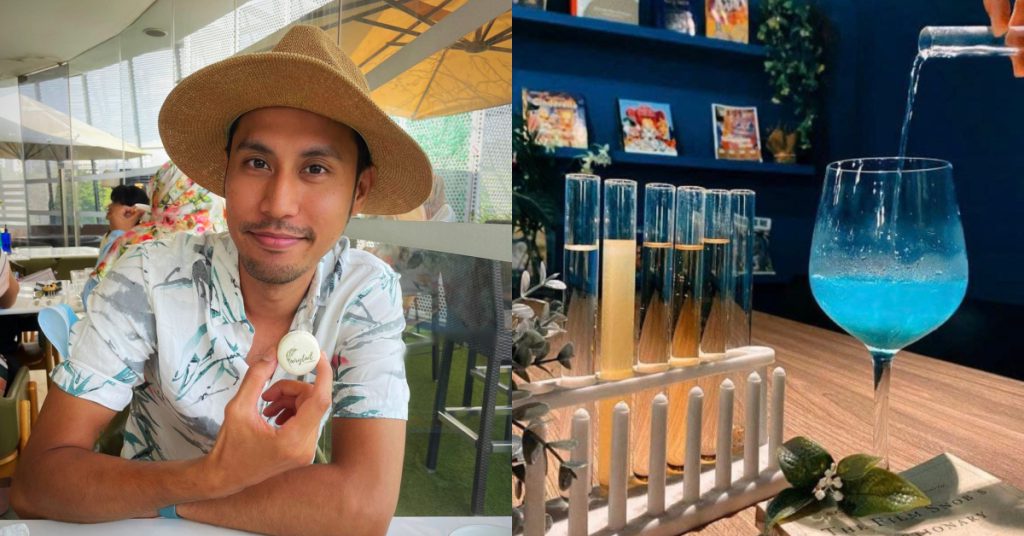
They say to make success out of something, you need to start young. That was what Max Ahmad, the founder of The Halal Mixologist, did.
From selling Digimon and Pokemon cards to his secondary school classmates, to teaching tennis as a Junior College student, Max knew that he wanted to run his own business one day.
His interest in business spurred him to pursue a Business degree at Nanyang Technological University (NTU), where he landed his first job at the Singapore Exchange Limited (SGX).
Little did Max know that this career path would soon change with a seemingly unassuming phone call. It turned out that a recruiter from Workforce Singapore (WSG) reached out to him for a job interview in the hospitality sector.
Max shared that he initially was not keen, given that he had already secured a job. Nonetheless, he decided to take a leap of faith. This chance encounter opened the doors for Max to enter the hospitality industry, where he worked with the Tourism department at WSG.
As a Senior Manager, Max worked closely with established industry partners and academies, notably Marina Bay Sands, and the Singapore Tourism Board. Through this experience, he not only learned from industry veterans but also honed his leadership and management skills, which will come in handy down the road.
Striking out on his own
Max knew that deep down, he still held onto his entrepreneurial dream, and it was just a matter of time.
At first, he dreamed of having his own themed boutique hotel while working with food on the premises. However, that also meant needing a large sum of money to be invested to launch and sustain the business.
Hence, Max decided to end his six-year stint at WSG and start small by opening backpacker hostels: Moni Gallery Hostel at Lavender Street, and The Shophouse Hostel at Arab Street—both of which required lower investment capital than hotels.
While managing his hostels, Max kept his gears running, coming up with new ideas that could bring something unique to Singapore’s hospitality industry. He turned back to his experiences for inspiration and remembered conducting meetings at hotel lounges and bars.
“As I do not drink alcohol, I felt a little out of place being in such places,” lamented Max, and added that he participated in celebrations with a glass of soft drink or juice to replace champagne.
It was also at that moment that Max noticed that the rooftop of The Shophouse Hostel was underutilised. “Why not make it a place that can generate revenue?” he said.
Coupled with a mission to create more inclusive wine and dining experiences, Max invested S$150,000 of his savings and converted the rooftop space into Singapore’s first halal bar, Atap Bar, in 2017.
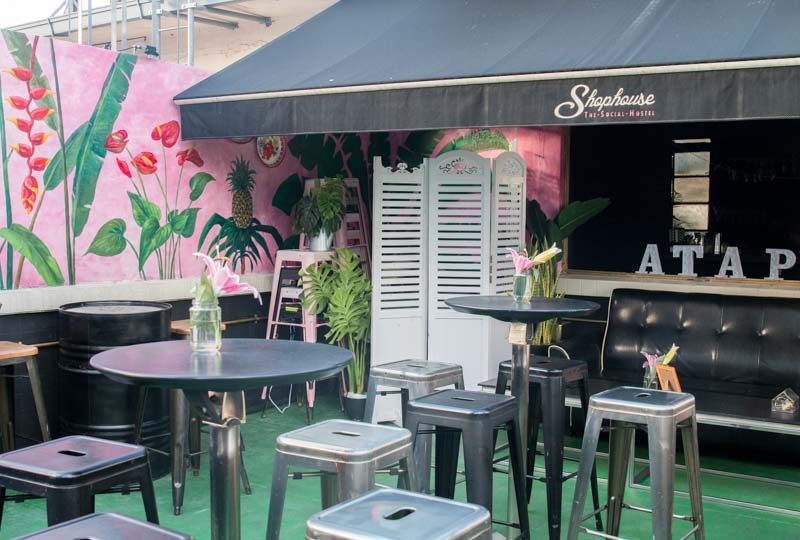
He has also sold his two hostels to fully focus on his restaurants. As of now, Moni Gallery Hostel is still operating and The Shophouse Hostel has closed.
At this point, one might wonder how The Halal Mixologist is related to Atap Bar. To put it simply, The Halal Mixologist started as a marketing tool to promote the bar’s concept.
“What sets us apart from others is that we are a halal bar concept with a mission of bringing fun to halal. We believe in delivering a fun and wholesome experience while being inclusive.”
Max Ahmad, founder of The Halal Mixologist
Opening his halal bars was not a walk in the park
However, Max found himself getting off to a shaky start.
Despite his background in hospitality, Atap Bar was his first foray into the F&B industry. As a result, Max experienced many struggles, including licensing, leading up to the bar’s launch.
The scarcity of manpower is also a prevalent problem in the industry, as few harbour the desire to pursue a long-term career in food—an obstacle that Max was all too familiar with.
“It was very difficult to hire the right people, and one of the mistakes we made was hiring the wrong people who were not a good fit for the organisation.
While we are still facing this problem, we have managed to include a way to identify people who would buy into our mission and values in the selection process. Having a team that believes in your mission and the direction you are working towards is important.”
Max Ahmad, founder of The Halal Mixologist
Max added that as Atap Bar was located on a hidden rooftop, it was challenging for the business to gain a natural footfall. Fortunately, the bar gained traction amongst Singaporeans after a month of opening.
With a consistent stream of customers, The Halal Mixologist achieved profitability within seven months and broke even after a year of operations.
2018 was also a year of change for Atap Bar, as the bar temporarily occupied The Great Mischief, another cafe in Singapore for two months.
However, two months after the move, Atap Bar closed its doors, to the dismay of many loyal customers. Max revealed to us at Vulcan Post that the landlord wanted to increase the rental by 50 per cent, a cost he was not ready to bear.
Atap Bar’s closure did not discourage Max, as he continued to open more halal speakeasies: first with Wanderlost Bar in late 2018, and Fairytail Bar slated to open in April 2020.
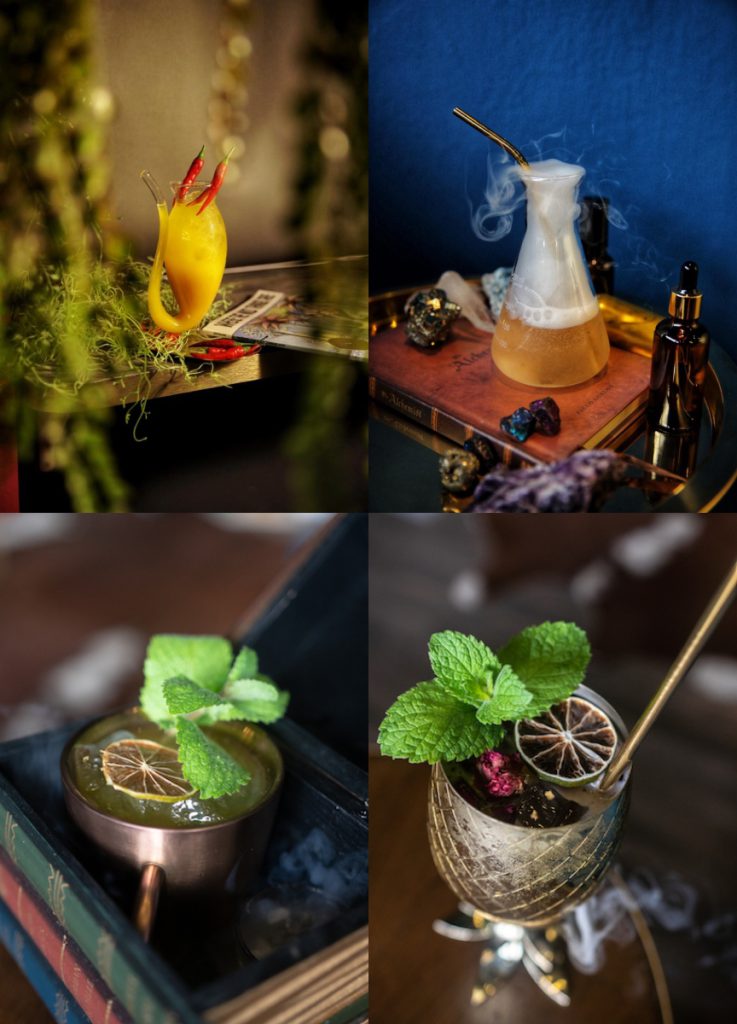
But the businesses hit a sudden roadblock due to the COVID-19 pandemic, inevitably delaying Fairytail Bar’s opening. Max described the Circuit Breaker as a “difficult time” for his businesses, as dine-ins were prohibited.
Fortunately, post Circuit Breaker, both Wanderlost Bar and Fairytail Bar saw increased traffic as Singaporeans started to explore more within the country due to the travel restrictions.
Out with the old, in with the new
If 2020 was the year of change, 2023 could be described as a rebirth for The Halal Mixologist.
The brand decided to close another chapter with Fairytail Bar, as D’Hotel was slated for renovations. “I guess one lesson we can learn from this is that it is important to have control over the lease, so hopefully one day we will work towards becoming our own landlord!” joked Max.
Not willing to give up on the brand’s mission, The Halal Mixologist launched two new F&B establishments: Nauti Nauti, a poolside oyster bar; and R.I.B, which offers halal takes on Southern soul food.
The business also ventured into e-commerce with Mockohol, an online platform aiming to make premium halal bottled beverages accessible to the masses at their doorstep.
With the three fledgling businesses, one might wonder how Max balances them altogether.
He elaborated to Vulcan Post that social media engagement remains critical to promoting the brand. The Halal Mixologist has since implemented a loyalty programme with a reward point system that allows future customers to offset their future bills when they visit their outlets.
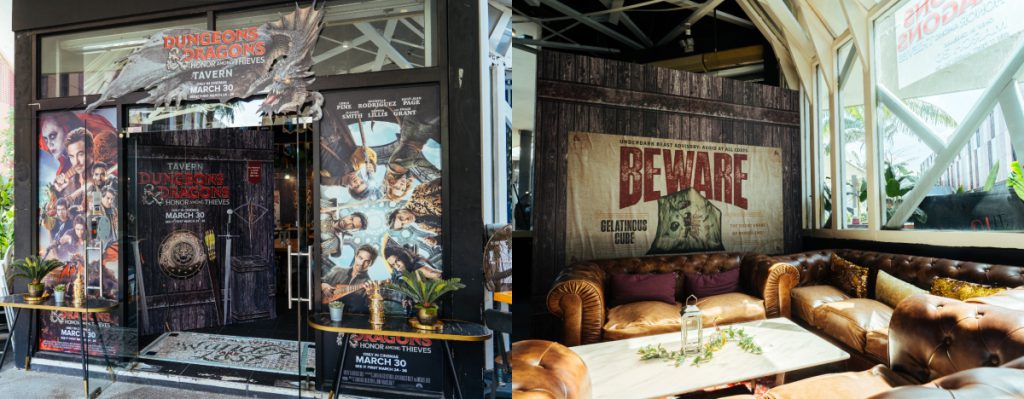
The Halal Mixologist’s one-of-a-kind bars and restaurants not only caught the attention of Singaporeans but also film and television giants United International Pictures and Hollywood for the live movie adaptation of the well-loved game Dungeons and Dragons (D&D).
For a month, Wanderlost was converted into a tavern reminiscent of the game, and a new menu of themed food and drinks was created. The bar also ran D&D games to commemorate the movie, which garnered much love from fans and new customers.
The Halal Mixologist offers new services such as mixology workshops and pop-up live bar stations to diversify their revenue streams further and hold youth development programs.
According to Max, the Youth Development Programs are the perfect platform for youths to get hands-on experiences working in bars and kitchens without handling alcohol. Through this initiative, he hopes to shape the future generation of the halal industry and attract more talent.
Despite all odds, The Halal Mixologist has evolved into a brand that champions inclusivity with their unorthodox halal F&B outlets and services. Looking forward, Max aims to solidify their businesses within the Singapore food scene.
Max also expressed his ambition to head upstream for his businesses, where he can develop his own production line and create his halal beverages, which he hopes will become a household brand in Singapore.
Embark on your startup journey with MAS-regulated ANEXT Bank, one of Singapore’s first digital banks for SMEs.
Featured Image Credit: The Halal Mixologist
Also Read: Founded in the 1950s, here’s how Ann Chin Popiah’s 2nd & 3rd gen owners revamped the biz
Median S’pore households made S$9240 more last year, monthly income to cross S$11,000 in 2024
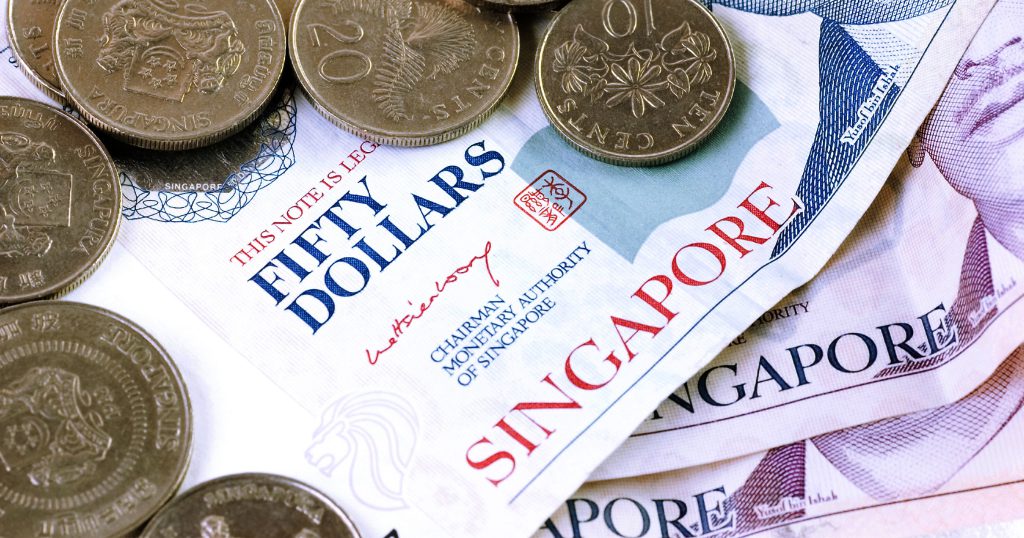
Disclaimer: Unless otherwise stated opinions expressed below belong solely to the author.
Singapore Department of Statistics released its latest Key Household Income Data 2023 two days ago, reporting that the median monthly household income from work (inclusive of employer CPF) increased to S$10,869 last year among resident households (citizens and permanent residents).
Median figure is used as it is the central value among all households — half of Singaporean residents make more and half make less. It is more relevant than a simple average, which is higher but skewed by very wealthy households which make considerably more than most Singaporeans do.
Inflation eroded some of the 7.6 per cent increase in nominal terms, leaving just 2.8 per cent when corrected for the rising prices. Fortunately, the change is still positive.
In money terms, it translates to S$770 more compared to 2022, for a total of S$9240 in additional income from work over the entire year.
It does not include any transfers from the government or other sources of income (such as rental).
Rich keep getting poorer
Somewhat surprisingly, perhaps, it was another year which saw the incomes of the wealthiest Singaporeans decrease in real terms. However, unlike before 2023, the poorest also suffered a decline:
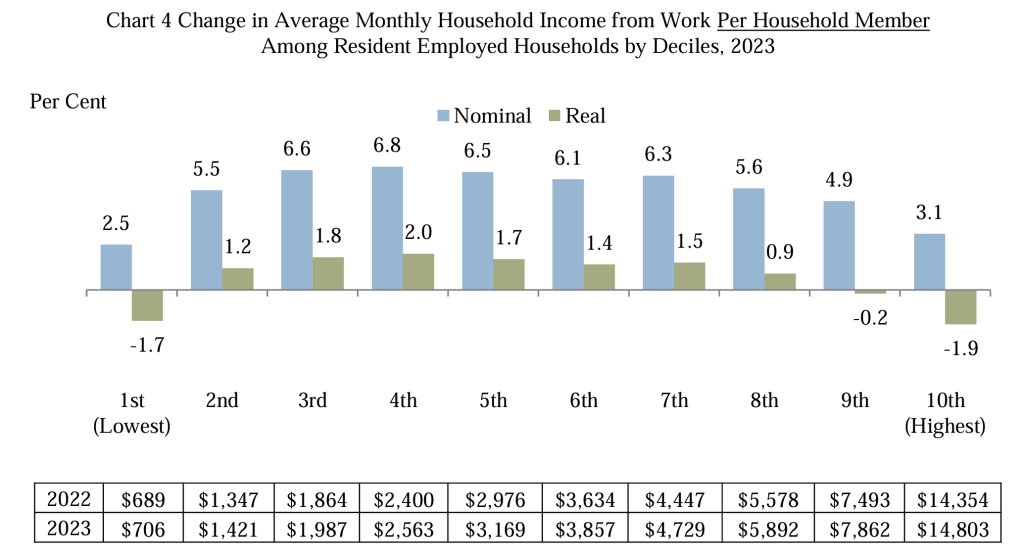
Fortunately it seems to have been just a hiccup in an otherwise positive trend, which has kept incomes of all groups but the richest growing over the past decade:
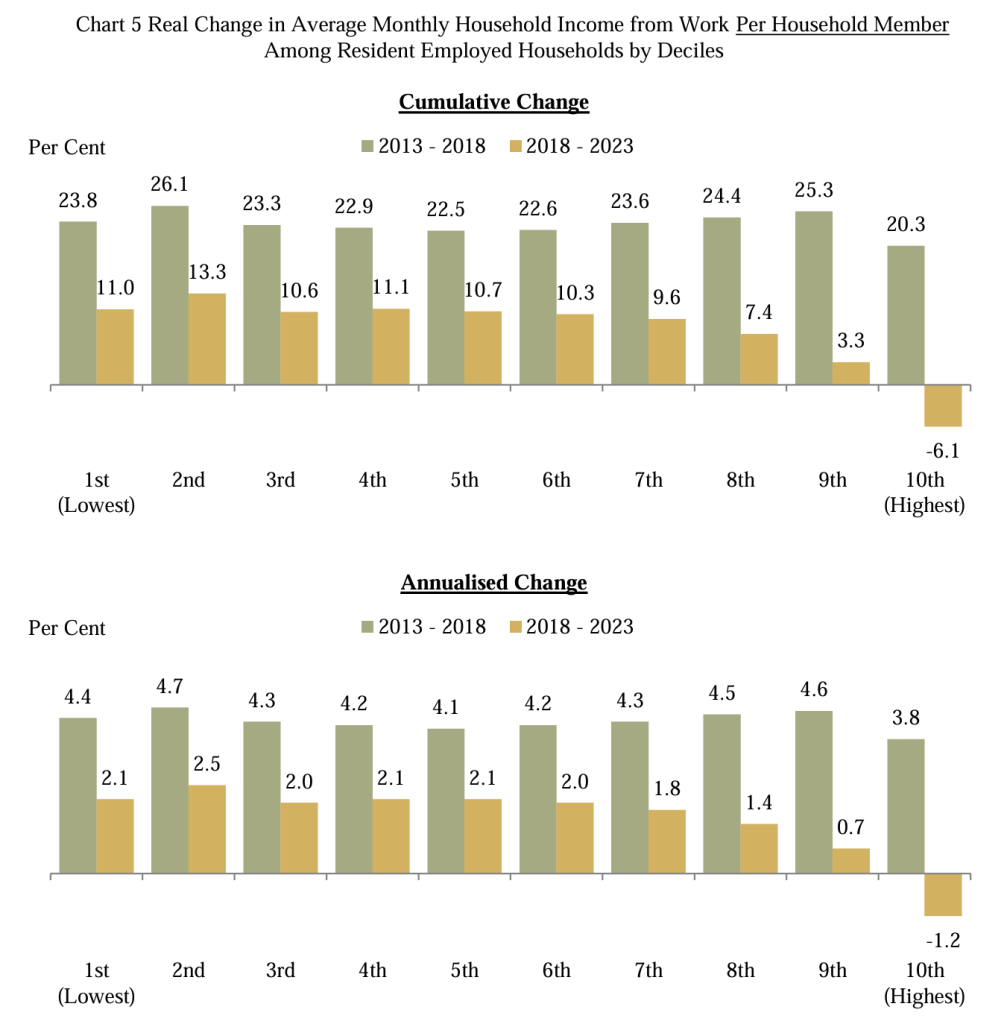
It’s worth noting how big the gap between the two 5-year sub-periods is for the richest locals.
Despite keeping pace with other income groups between 2013 and 2018, at around 20 to 25 per cent, the wealthiest deciles suffered a significant drop in income growth or even a decline in real incomes among the top 10 per cent of the society.
They are more than 6 per cent worse off than they were all the way back in 2018.
Inequality
For those concerned about inequality, however, this is good news, as the Gini coefficient followed suit and continues its falling, indicating shrinking income inequality levels, further accelerated by government handouts:
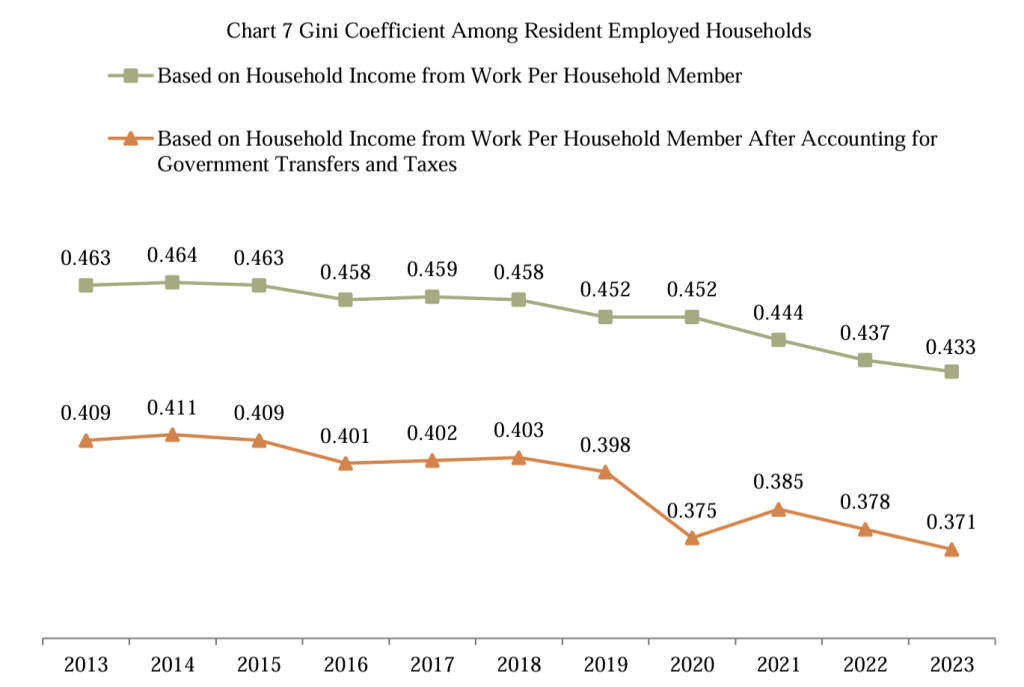
S$1500 extra from the government
Speaking of handouts, government schemes aimed at reducing the burden of the transition to higher GST rates for most regular households, boosted the total average received for each household member to S$6371, up by S$512 per person compared to 2022.
Given the household size of a little over three pax, it means that all received an average S$1500 extra in government transfers last year.
In reality, it was even more for most Singaporeans, as the wealthiest pay by far the most in taxes while qualifying for the fewest benefits.
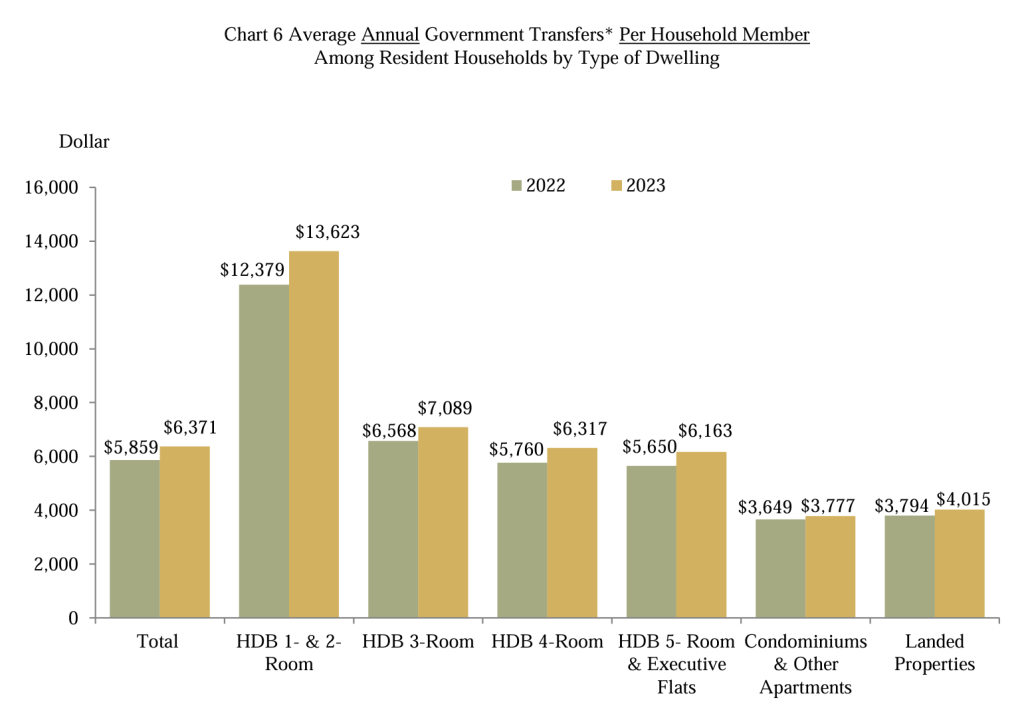
As you can see, residents of the smallest HDB apartments received S$1244 more than in 2022, per person – more than two times the average, while all groups below 5R and Executive Flats still stayed above it.
S$11,000 or more in 2024
Given the slowing inflation, the nominal increase in incomes should also slow down this year, although it is still expected to come in at at least 4 per cent.
This would take the median to around S$11,300 per month, adding another S$5000 annually per each middle-income household.
And while it may not result in a huge bump in the real value of local salaries, it makes Singaporeans relatively wealthier when they travel abroad, given how strong the SGD continues to be against other currencies.
That’s why, despite some struggles with rising living costs (which are, however, a global problem), the Year of the Dragon might be the year of globetrotting, even for an average Singaporean.
Also Read: Median salary in S’pore jumps over S$5,000 in 2022 – lowest wages rise 2x faster than average